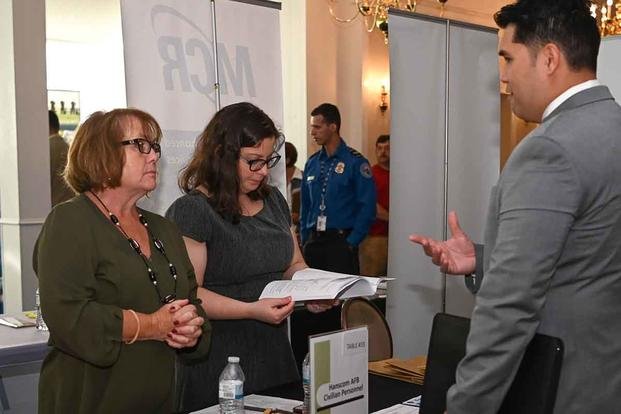Before the global pandemic changed American job markets in 2020, veteran unemployment was hitting all-time lows. In April 2020, the veteran unemployment rate was lower than the national average, sitting at 3.7% while the overall rate was at 3.9%.
So while there was still work to be done (veteran homelessness is still an issue), finding a job wasn't the biggest problem for veterans leaving the military; it was finding adequate work.
Many would argue that any job at all is better than unemployment, and that may be correct during hard economic times. For most veterans, however, "any" job can have a deleterious effect in many ways.
No Loyalty
Veterans pride themselves on dedication to their jobs and companies. In fact, many vets will try to sell prospective employers on that assertion during job interviews. But the numbers don't support that claim -- and the reason is because of a poor fit.
Research shows that 44% of hired vets leave their job within the first year. Another 80% will leave before the end of their second year. They just don't find the same opportunities for personal growth, professional development or career advancement, especially compared to their military service.
It won't be long before employers notice this trend, and recently separated veterans will have even more trouble finding that first job.
Mental Effects
In the same study that found many veterans leave their first job within the first year, researchers found that nearly half of those who left either had trouble relating to their civilian colleagues, relating to the company or understanding the job itself.
Transitioning to the civilian world is difficult enough for many military members. Navigating the world of Department of Veterans Affairs claims, taking care of any mental health issues and laying the foundation for the rest of your civilian life is stressful. If your first civilian job only adds to that stress, it could adversely affect your entire transition.
Find the Right Job
A full 61% of veterans who left their job within the first year either found a new one that fit their skills and experience or admitted to taking the original job only as a means of income in the first place. It's vitally important to a veteran's mental well-being and career stability to wait and find the job that fits, not just the one that pays.
Though they may be feeling the pressure to find a paying job right after they leave the military, the best thing a veteran can do -- both for their short-term mental health and long-term career -- is to look for a job that challenges them and helps them grow personally and professionally.
Anything else is a waste of time and may hurt veterans who will get out of the military in years to come.
-- Blake Stilwell can be reached at blake.stilwell@military.com. He can also be found on Twitter @blakestilwell or on Facebook.
Want to Know More About Veteran Jobs?
Be sure to get the latest news about post-military careers, as well as critical info about veteran jobs and all the benefits of service. Subscribe to Military.com and receive customized updates delivered straight to your inbox.












